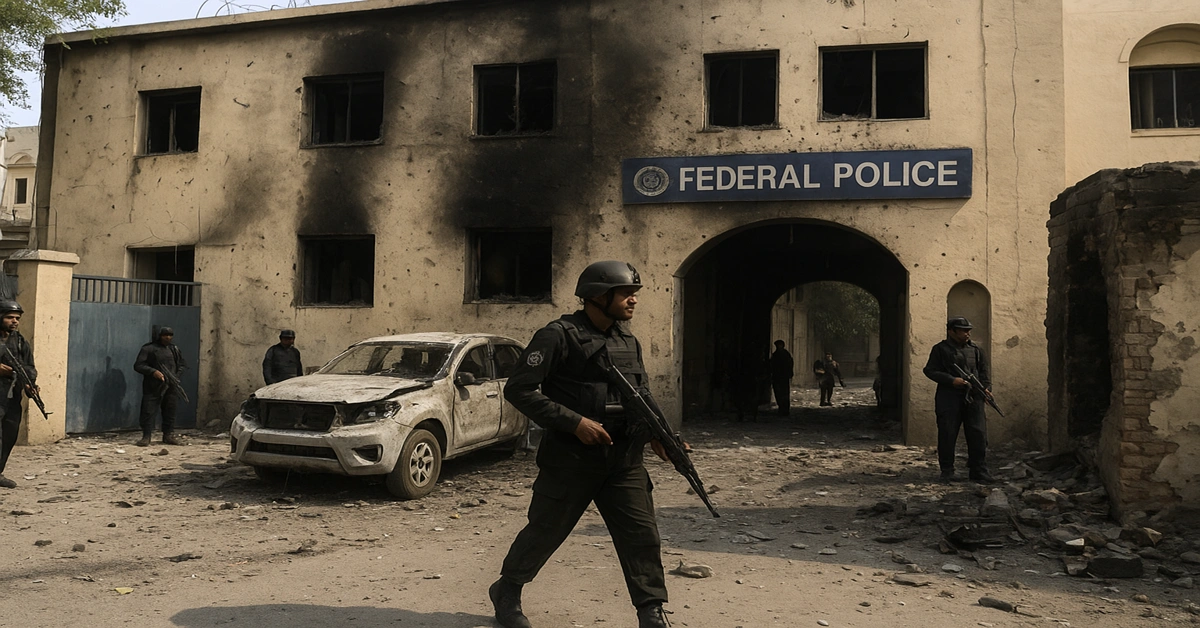Last Updated: November 2, 2025
Shahid Khaqan Abbasi Suffers Heart Attack: What We Know, What It Means and What Comes Next

Former Prime Minister Shahid Khaqan Abbasi was rushed to hospital on 2 November 2025 after experiencing severe chest pain. Doctors diagnosed a cardiac event, found two blocked coronary arteries and placed stents. He is now reported to be in stable condition. This article unpacks the medical facts, political context, personal implications, and what to watch in the coming days.
What happened: timeline of the event
On the morning of Saturday, 2 November, Abbasi complained of chest and shoulder pain at his residence in Islamabad. He was taken to a private hospital (Al-Shifa Hospital) where cardiologists diagnosed blockages in two arteries and inserted two stents to restore blood flow. His party confirmed his condition is now stable and improving.
Medical details and implications
The insertion of stents means that doctors found significant coronary artery disease: two major vessels were sufficiently blocked to require immediate intervention. This places Abbasi in the category of patients who require close monitoring for cardiac risk going forward — medication, lifestyle change, periodic check-ups and careful management of blood pressure and cholesterol will be critical.
His age (67 according to some reports) and the fact that this event occurred despite his high-profile status serves as a reminder of how cardiovascular disease can affect anyone, including those with access to medical care.
Political and personal context
Abbasi is a senior political figure: former Prime Minister (2017-2018), founder and convener of the Awaam Pakistan Party (APP) since 2024, and once a senior leader in the Pakistan Muslim League-Nawaz (PML-N). His health incident comes at a time when his party remains active in Pakistani politics, and his absence may have short-term implications for leadership and party activity.
What this means going forward
From a health perspective:
- He will likely require medication (antiplatelet, statin, others), regular cardiologist check-ups and lifestyle modification (diet, exercise, stress reduction).
- His ability to engage in full political activity may be reduced in the short term while he recovers and monitors his heart health.
From a political perspective:
- The APP may need to make contingency plans for leadership duties during his recovery period.
- His hospitalization will draw media and public attention; how he uses the period of recovery (perhaps focusing on policies, appearing less in public rallies) may shape his next phase.
- Party rivals may interpret his absence as a window of opportunity; alliances and internal dynamics could shift.
What to watch in next few days
- Official statements from his medical team: when he is formally discharged, any complications, how his recovery is progressing.
- Public appearances and statements by Abbasi and the APP: when he returns to party leadership activity, whether his health becomes part of his public narrative.
- Media coverage of his condition and how it may affect the APP’s political calendar (elections, rallies, alliances).
- Health of senior politicians generally: this incident may increase focus on cardiovascular risk among politicians and public figures in Pakistan.
Why this matters beyond one individual
The health of a senior leader like Abbasi has broader resonance: it reminds the public of the human vulnerability of political figures. It also highlights issues of cardiovascular disease in Pakistan, where risk factors such as hypertension, diabetes, and sedentary lifestyle are widespread.
Advice for readers: heart health takeaways
- Recognize chest discomfort and shoulder pain early — they may signal cardiac issues even in people who seem healthy.
- Regular medical check-ups are especially important if you have risk factors such as age, family history, diabetes, or high blood pressure.
- Lifestyle changes (balanced diet, exercise, stress management) are critical for prevention.
Conclusion
Shahid Khaqan Abbasi’s heart attack and subsequent treatment remind us that even prominent figures are not immune to serious health events. While his condition is reportedly stable and improving, the recovery period and its political implications are worth watching. For many Pakistanis, the incident reinforces the importance of heart health, proactive medical care, and awareness of cardiovascular risk.
Frequently Asked Questions (FAQs)
Q: Is Shahid Khaqan Abbasi out of danger?
A: According to hospital and party statements, his condition has stabilized after the stent procedure and he is now resting under observation.
Q: Will this affect his political career?
A: In the short term, yes — his activity may reduce while he recovers. In the medium to long term, it depends on his health management and how his party responds to the interim gap.
Q: What are the key risk factors for heart attacks in Pakistan?
A: Key risk factors include high blood pressure, diabetes, obesity, smoking, and poor diet. Recent data shows nearly half of heart attack patients in Pakistan are under 49 years old.
Q: How long will recovery take after stent placement?
A: Recovery varies by individual and condition; many patients resume moderate activity within weeks, but full return to demanding roles may take months under supervision and lifestyle change.
You May Also Like:

Saba Qamar’s Recent Heart Attack Sparks a National Wake-Up Call: How Stress is Breaking Our Hearts...

Chaos at Sea: Massive Blast Rocks Iran’s Shahid Rajaee Port, Hundreds Injured!...

Peshawar FC Headquarters Attack in 2025: What Happened and Latest Updates So Far...

Car Explosion Near Red Fort, New Delhi: What Happened and What It Means...

ICC Issues Arrest Warrant for Netanyahu: What It Really Means...

Trump’s Nuclear Allegations: China, Russia, Pakistan & What It Means...

Starlink and the Race for Satellite Internet in Pakistan: What You Need to Know in 2025...

